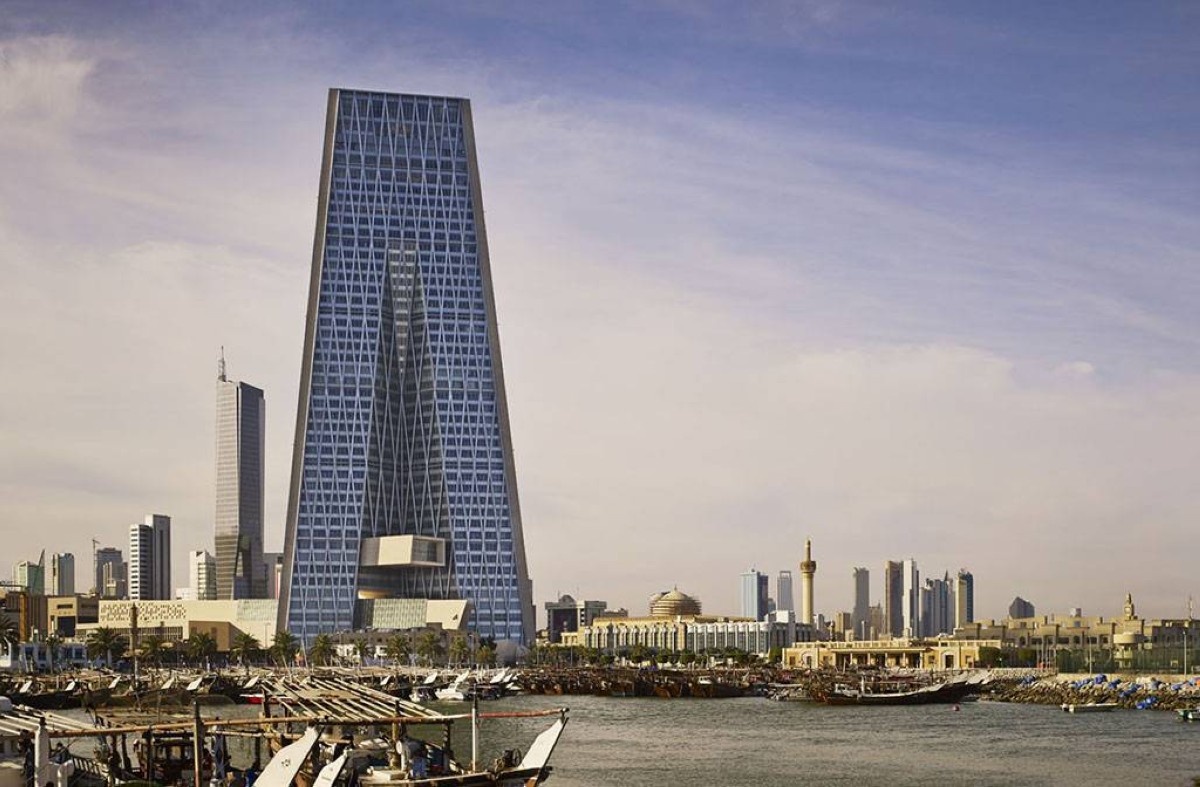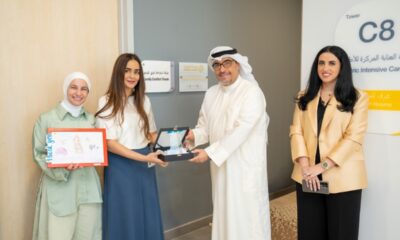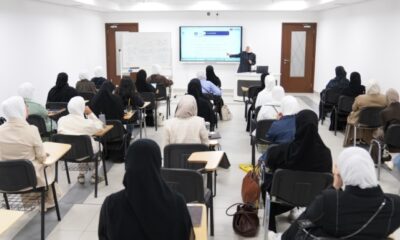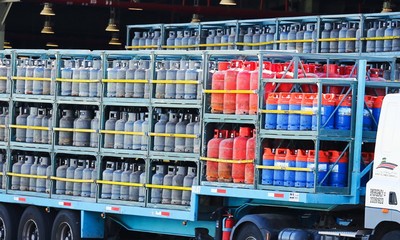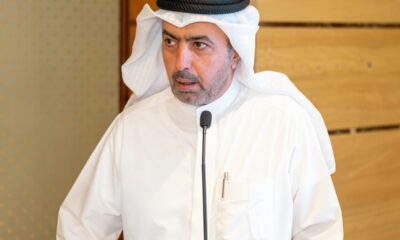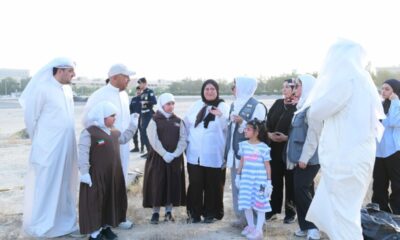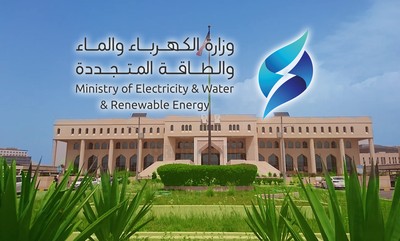KUWAIT: The 11th relief plane departed Sunday morning as part of Kuwait’s second humanitarian airlift under the campaign “Kuwait by Your Side”, carrying 10 tons of food supplies to the Gaza Strip via El-Arish Airport in Egypt. The flights are organized within the “Fazza for Gaza” campaign, led by the Kuwait Red Crescent Society (KRCS) in cooperation with Kuwaiti charitable organizations, and in coordination with the Ministries of Social Affairs, Foreign Affairs and Defense, with logistical support provided by the Kuwaiti Air Force. KRCS Chairman Ambassador Khaled Al-Mughamis told KUNA prior to the plane’s departure that the society will continue to dispatch humanitarian and relief convoys to Gaza in line with the directives of Kuwait’s political leadership and its commitment to alleviating the urgent needs of the Palestinian people amid dire humanitarian conditions.
He said the current mission is supervised by a KRCS delegation headed by Director General Fawaz Al-Mazrouei and liaison officer Abdulrahman Al-Saleh, tasked with overseeing the food shipments provided by Kuwaiti charitable associations. The aid is being coordinated with the Egyptian Red Crescent Society to ensure urgent delivery to Gaza. Al-Mughamis underlined that these efforts reflect Kuwait’s long-standing humanitarian role and its unwavering initiatives to assist afflicted communities worldwide. He stressed that the scale of suffering in Gaza requires intensified efforts and increased relief to help mitigate the crisis.
He added that KRCS continues to work in full coordination with the concerned ministries, the Kuwaiti Embassy in Cairo, and the Egyptian Red Crescent to guarantee that aid reaches those in need, extending gratitude to Kuwait’s leadership for its guidance and support in facilitating the delivery process. The statement noted that Kuwait’s ongoing humanitarian airlift, launched on August 10, has so far delivered 200 tons of urgent aid, including contributions from the Kuwait Flour Mills and Bakeries Company.
Staff at Abdullah Al-Mubarak Air Base supervise the transportation of relief aid.- KUNA photos
In another development, Speaker of the Arab Parliament Mohammad Al-Yamahi affirmed Sunday that peace in the region cannot be achieved without ending Zionist occupation of all Arab territories and establishing an independent, sovereign Palestinian state with Jerusalem as its capital. In a statement marking the International Day of Peace, observed annually on September 21, Al-Yamahi urged intensified efforts to halt hostilities, refrain from violence and work toward lasting peace in the Arab world.
He stressed the importance of holding Zionist entity accountable for what he described as genocide against the Palestinian people and called for providing them with international protection. Al-Yamahi emphasized that the Palestinian cause remains the cornerstone for achieving security, stability and peace in the region and beyond. The Arab Parliament chief underlined that peace is the true guarantee for safeguarding human dignity and protecting fundamental rights.
He noted that a comprehensive and just peace forms a pillar of sustainable development, social progress and people’s aspirations for a dignified life.
Al-Yamahi also highlighted the need for reform within the international system tasked with maintaining global peace and security, saying it must be empowered to fulfill its mandate. He reiterated the Arab Parliament’s full support for Arab, regional and international efforts to spread a culture of peace and promote the values of tolerance, dialogue, citizenship and coexistence, while rejecting all forms of violence, hatred and extremism.
Meanwhile, United Nations Secretary-General Antonio Guterres told AFP on Friday that the world should not be “intimidated” by Zionist entity and its creeping annexation of the occupied West Bank. In an interview ahead of the UN General Assembly’s high-level week, Guterres also warned that efforts to limit global warming to 1.5 degrees Celsius above pre-industrial levels risk “collapsing.”
The annual gathering of more than 140 world leaders in New York is expected to be dominated by the future of Palestine and the war in Gaza, as at least 10 countries prepare to formally recognize a Palestinian state, according to France — despite strong Zionist opposition. Reports said Zionist entity has threatened to annex large parts of the West Bank if recognition proceeds. But Guterres urged nations not to be swayed, saying, “What we are witnessing in Gaza is horrendous. It is the worst level of death and destruction I have seen in my time as Secretary-General, probably in my life.
The suffering of the Palestinian people cannot be described — famine, collapse of health care, and families forced into overcrowded shelters.” Zionist far-right Finance Minister Bezalel Smotrich has called for annexation of swaths of the West Bank to “bury the idea of a Palestinian state” after several countries backed France’s push for recognition. Washington, however, has withheld criticism of Zionist entity’s war in Gaza and its annexation threats, while rebuking allies that pledged to recognize a Palestinian state.- Agencies



